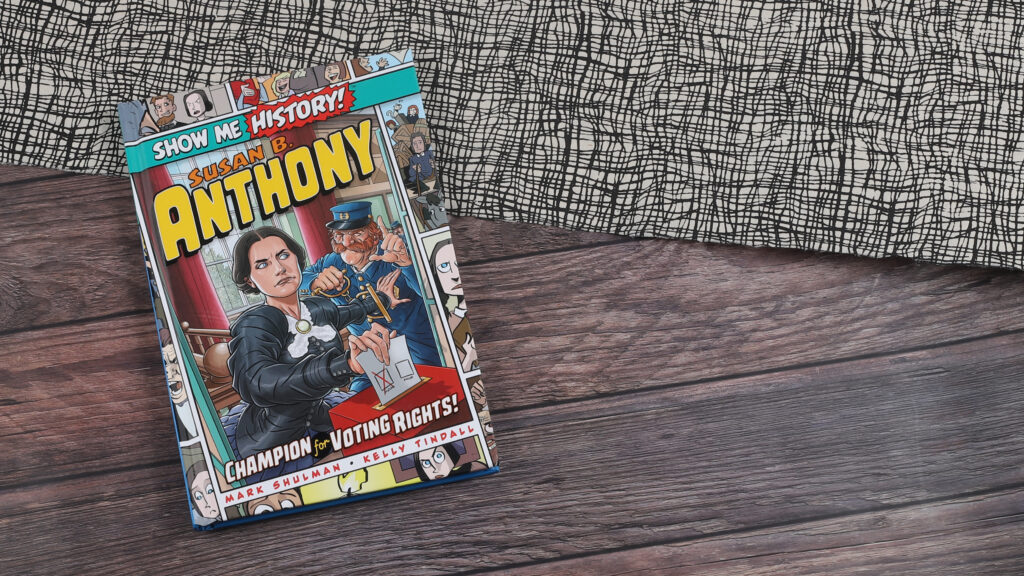
You probably know that Susan B. Anthony had something to do with getting women the right to vote in the United States—the 19th Amendment guaranteeing such was ratified in August 1920—but do you know how she did it and what, exactly, she did? See below and take a look at her Show Me History biography, Susan B. Anthony: Champion for Voting Rights! to learn more.
But First, Abolition
Susan B. Anthony fought for causes which, in the late 19th century and early 20th century, were so progressive that they were nothing short of revolutionary, particularly as they were being advocated by a woman. Raised in the Quaker religious tradition, Anthony was morally opposed to the slavery still legal and widely practiced in the U.S. by the time she was an adult. In 1856, she was named the head of the New York chapter of the American Anti-Slavery Society, and during the Civil War—fought over slavery—Anthony helped create the emancipation-minded Women’s National Loyal League.
Stay Sober
The temperance movement—arguing for widespread abstinence from alcohol, if not banning it outright—was among the first major political and social moments in the U.S. in which women led the charge. That’s due in large part to sexism in the early days of the movement in the 1840s. After she wasn’t allowed to address the crowd at a temperance rally in New York in 1852, Anthony formed the influential Woman’s New York Temperance Society.
Speaking Out
But the biggest and most important impact Anthony would have on American life and government: attaining the right to vote for half of the country’s population. Along with Elizabeth Cady Stanton, she formed the women’s suffrage-advocating newspaper The Revolution in 1868, and then the National Woman Suffrage Association. She quit work on the magazine to go on a lecture tour of the U.S., speaking out in favor of—and popularizing the idea—that women should have the vote.
Breaking the Law
Anthony voted in the 1872 presidential election—an illegal act. In the well-publicized trial that would serve her cause, Anthony reasoned that since she was an American citizen under the language of the 14th Amendment (passed in 1868, and which granted citizenship to freed slaves and “all persons born” in the U.S.), that she had the right to cast her ballot. Anthony was quickly convicted and fined $100—which she refused to pay (and never did).
Getting the Vote
After Stanton stepped down in 1892, Anthony assumed the presidency of the National American Woman Suffrage Association, which thanks in part to her speaking engagements and legal challenges, had grown into a large organization, uniting other, smaller suffrage groups. She spoke at two of the most widely attended events of her day, the 1893 Chicago World’s Fair and the Lewis and Clark Expedition in Portland in 1905. She’d die a year later—14 years before women would finally be granted full voting rights.
There’s a lot more to learn about Susan B. Anthony, and much can be found in Susan B. Anthony: Champion for Voting Rights!, an entry in Portable Press’s “Show Me History!” series of graphic novels about historical heroes.








